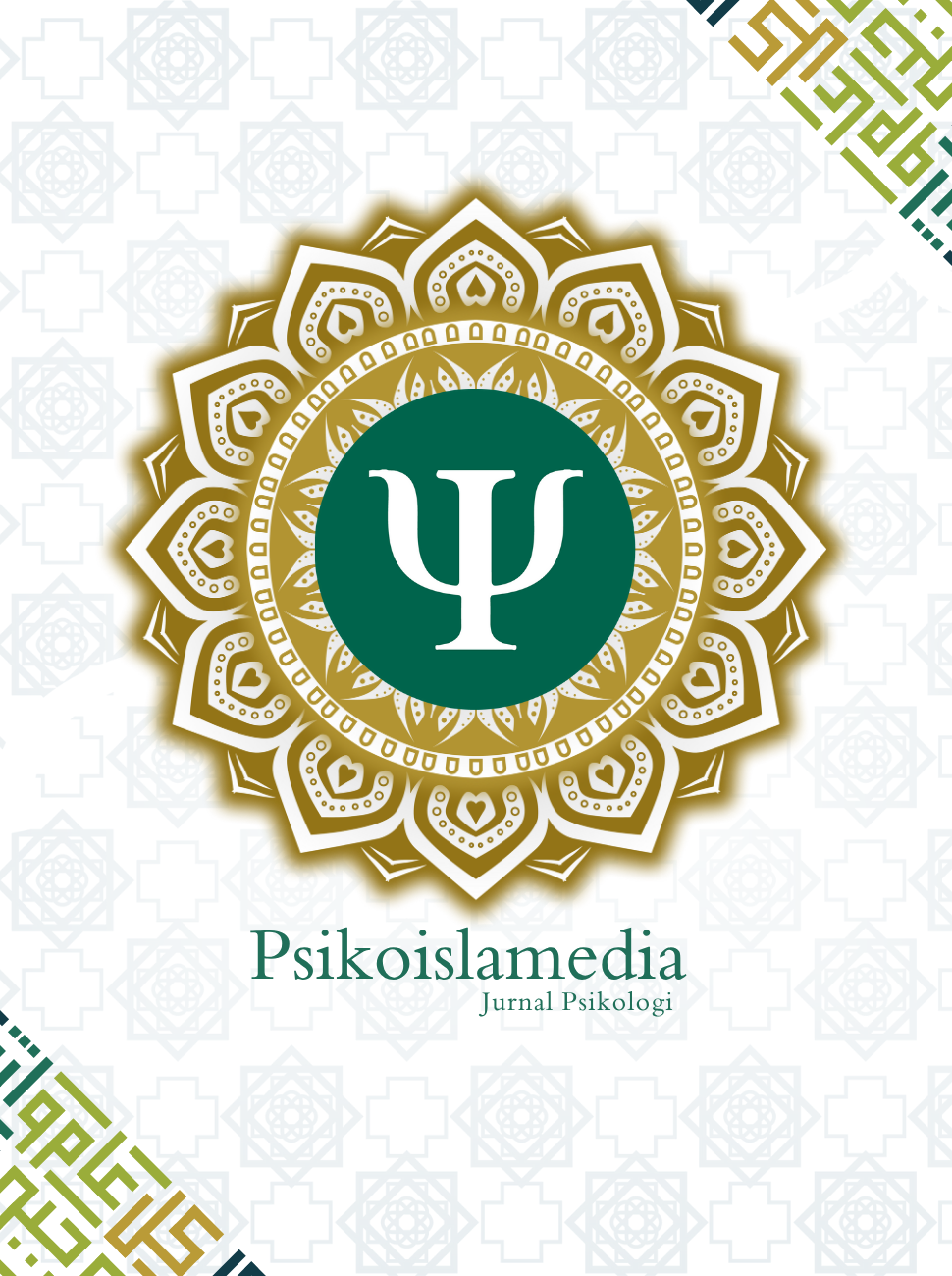PENGARUH PELATIHAN REGULASI EMOSI TERHADAP PENGURANGAN STRES DAN PENINGKATAN OPTIMISME PADA PENGANGGUR DI YOGYAKARTA
DOI:
https://doi.org/10.22373/psikoislamedia.v4i1.6351Keywords:
Stres, Optimisme, Regulasi Emosi, dan Penganggur.Abstract
This study aims to determine the influence of emotion regulation training for stress reduction and increased optimism on the unemployed in Yogyakarta, especially the unemployed and a half unemployed. Emotion regulation training is training that uses concepts based on skills Greenberg recognize emotions, emotional expression skills, skills to manage emotions, and skills to change negative emotions into positive emotions. Subjects in this study is the subject of underemployed. The data was collected using a stress scale, an optimism scale, interviews and observation. The research design used was pre-test post-test control group design. Analysis of the research is quantitative and qualitative analysis. Quantitative analysis with hypothesis testing using t-test analysis test to determine whether there is emotion regulation training effect in reducing stress and increasing optimism among the experimental group and control group. Qualitative analysis was conducted based on observation, interview, job sheets. The result of this study is no difference of level of stress and levels of optimism significantly between experimental groups and control groups before training, after training and 2 weeks after training.References
Azwar, S. (2007). Metode penelitian. Yogyakarta : Pustaka Belajar.
Bonanno, G.A. (2001). Emotion Self Regulation. Dalam Mayne, T.J., & Bonanno, G.A. (Eds). Emotion: Current Issues and Future Direction. New York: The Guillford press, 251-285.
Gohm, C. (2003). Mood Regulation and Emotional Intelligence: Individual Diffrences. Journal of Personality and Social Psychology, 84 (1), 594-607.
Greenberg, L.S. (2002). Emotion - Focused Therapy: Coaching Clients to Work Through Their Feelings. Washington, DC : American Psychological Association.
Grieshaber, C. (1994). Step by Step Group Development. Feldafing : German Foundation for International Development, centre for Food and Agriculture Development.
Hertinjung, S.W., (2009). Efek Pelatihan Relaksasi Terhadap Gejala Gangguan Stres Pasca Trauma pada Korban Kekerasan Seksual. Tesis. Tidak Diterbitkan. Yogyakarta. Fakultas Psikologi UGM.
Kivimaki, M., Elovainio, M., Singh, A.M., Vahtera, J., Helenius, H., & Pentti, J (2005). Optimism and Pessimism as Predictors of change in Health After Death or Onset of Severe Illness in Family. Health Psychology, 24 (4), 413-421.
Kostiuk, L.M., & Foutz, G.T. (2002). Understanding of emotions and Emotions Regulations in Adolescent Females with Conduct Problems: A Qualitative Analysis, The Qualitative Report. Volume 7 nomor 1.
Lazarus, R.S. (1991). Emotion and Adaptation. New York: Oxford University Press.
Lazarus, R.S., & Folkman, S. (1984). Stress, Appraisal and Coping. New York: Springer Publishing Company, Inc.
Lestari, A. (1999). Pelatihan Berpikir Positif untuk Menangani Sikap Pesimis dan Gangguan Depresi. Tesis. Tidak Diterbitkan. Yogyakarta: Fakultas Psikologi UGM.
McClelland, D. (1961). The Achieving Society. New Jersey: Van Nonstrand Company. Inc.
Ramadhina, R. (2007). Don’t Worry: Bersama Kesulitan Pasti Ada Kemudahan. Yogyakarta: Uswah.
Richard, J.J., & Gross, J.J. (2000). Emotion Regulation and Memory: The Cognitive Cost of Keeping One’s Cool. Journal of Personality and Social Psychology. 79 (3), 410-424.
Sarafino, E.P. (1998). Health Psychology Biopsychosocial Interaction. Third Edition. New York: John Wiley & Sons, Inc.
Seligman, M.E.P. (1991). Learned Optimism. New York: Alfred A. Knoff.
Seligman, M.E.P. (1995). Child Optimism. New York: Alfred A Knopf Publisher.
Smyth, J.M., (1998). Written Emotional Expression: Effect Sizes, Outcome Types, and Moderating Variables. Journal of Consulting and Clinical Psychology. Vol. 66, No. 1, 174-184.
Taylor, S.E., (1995). Health psychology. Singapore. Mc.Graw Hill. Inc.
Tugade, M.M., & Fredrickson, B.L. (2004). Resilient Individual Use Positive Emotions to Bounce Back from Negative Emotional Experiences. Journal of Personality and Social Psychology, 86 (2), 320-333
Widianti, F. (1999). Struktur Faktor Kesehatan Mental pada Penganggur di Kodya Yogyakarta. Tesis. Tidak Diterbitkan. Yogyakarta: Fakultas Psikologi UGM.
Downloads
Published
Issue
Section
License
Authors who publish in this Journal agree to the following terms:
- Authors retain copyright and grant the journal right of first publication with the work simultaneously licensed under Attribution-ShareAlike 4.0 International (CC BY-SA 4.0) allows others to share the work with an acknowledgment of the work's authorship and initial publication in this journal.
- Authors are able to enter into separate, additional contractual arrangements for the non-exclusive distribution of the journal's published version of the work (e.g., post it to an institutional repository or publish it in a book), with an acknowledgment of its initial publication in this journal.
- Authors are permitted and encouraged to post their work online (e.g., in institutional repositories or on their website) prior to and during the submission process, as it can lead to productive exchanges, as well as earlier and greater citation of published work. (See The Effect of Open Acces)














